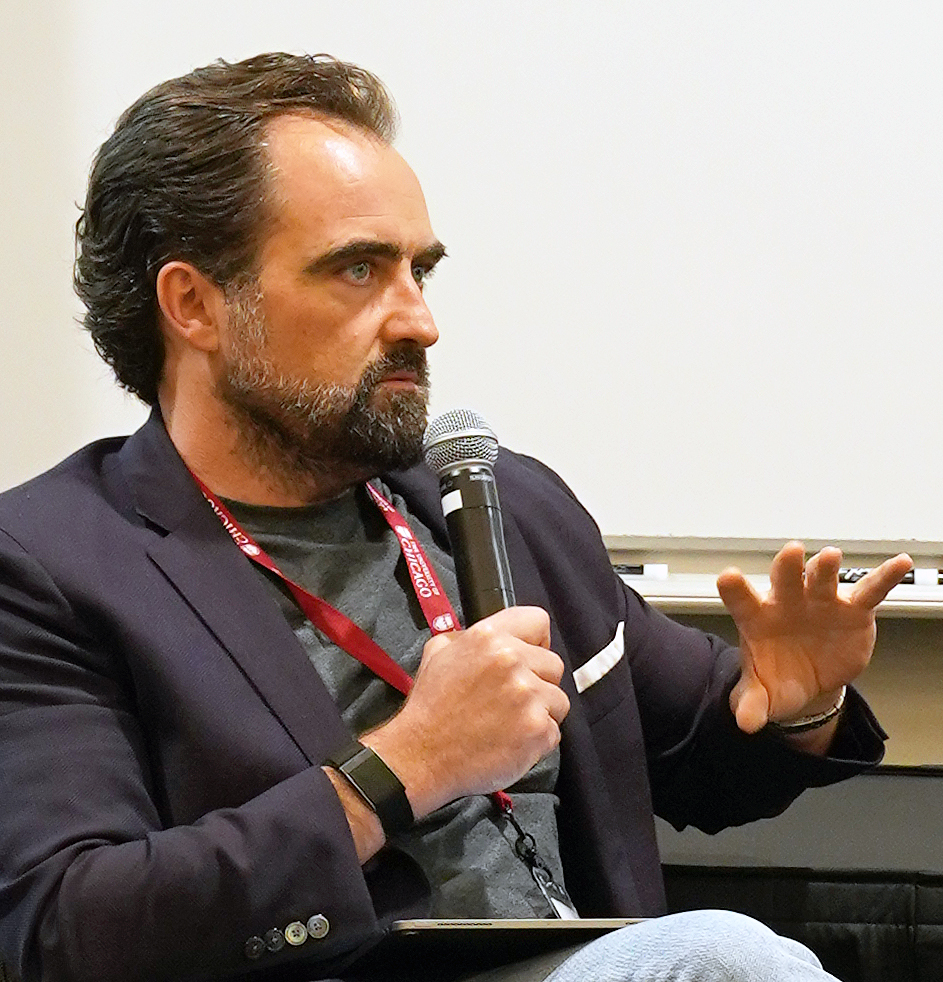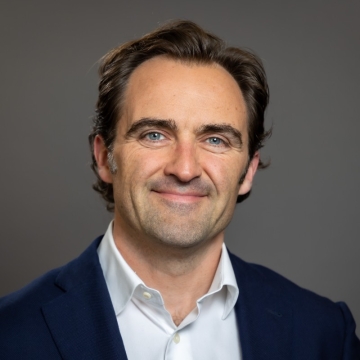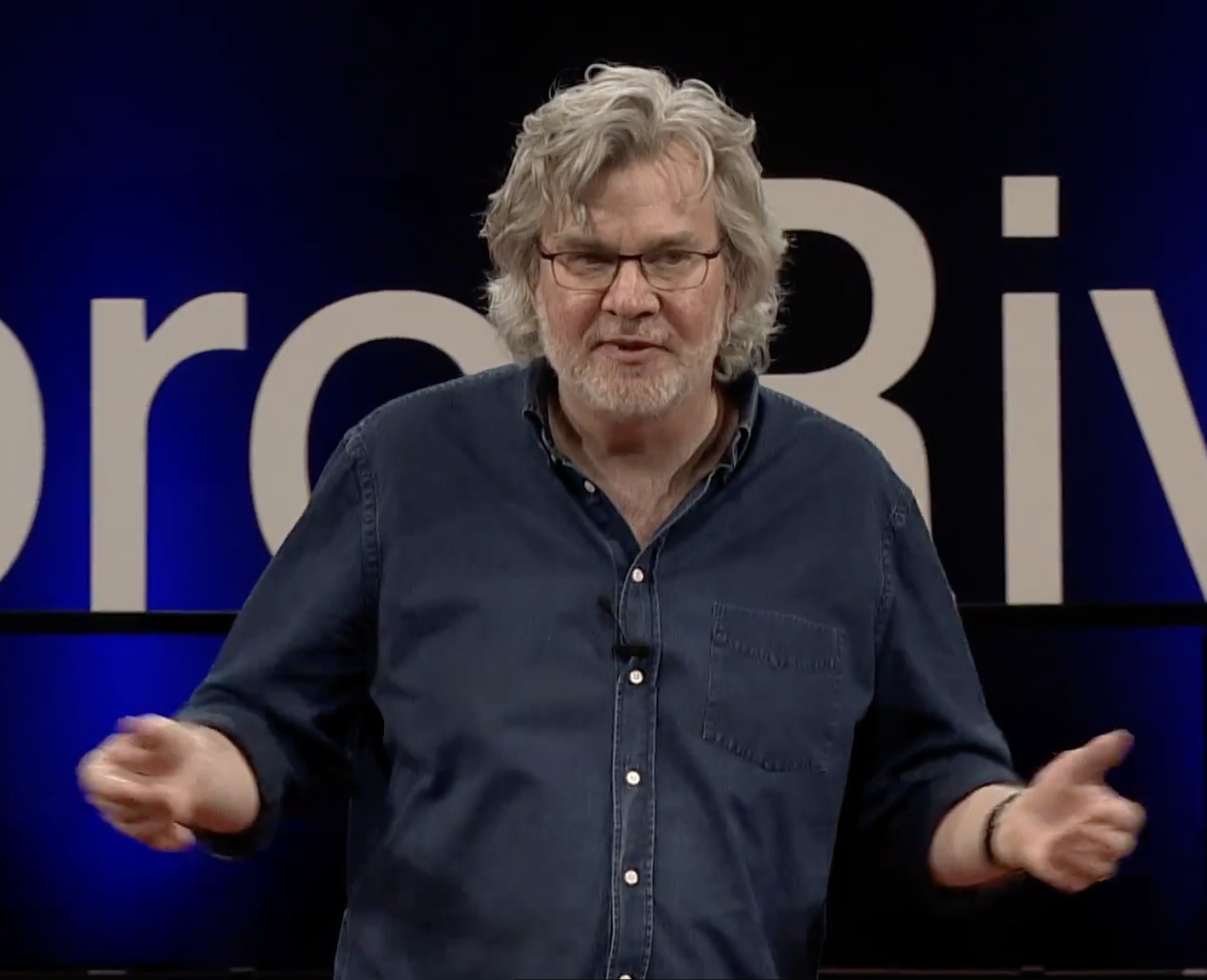The past decade has seen the Chief Revenue Officer (CRO) become one of the most consequential roles in business. Even as the role proliferates, firms still struggle to answer key questions about it: What defines the role’s boundaries? What capabilities matter most? What separates elite CROs from the rest? Dan Frailey, MBA, has spent his career grappling with exactly these questions.
As a three-time Chief Revenue Officer and former Global Topic Lead for B2B Go-to-Market at Boston Consulting Group’s (BCG) private equity practice, he’s built revenue engines, advised CEOs and investors, and created frameworks that organizations from Oracle to Disney to Salesforce have adopted. His approach is distinguished by thinking strategically and critically about what the role actually requires.
This distinction informs the Chief Revenue Officer Program that Frailey helped develop and now teaches a course in the University of Chicago’s Booth School of Business. Drawing participants from Fortune 500 companies to high-growth start-ups worldwide, the executive education program treats the CRO role not as an extension of sales leadership but as a fundamentally different position.
All about integration
For Frailey, the defining characteristic of the CRO is integration. “What makes a CRO a CRO is that they integrate the leadership of all of the revenue functions under a single executive for superior coordination,” he says. Ideally, this extends beyond sales to include marketing, customer success, revenue operations, and pricing strategy as well. The alternative, where siloed functions report to different executives, might seem cleaner, but strategically, he says, it’s suboptimal.
“A talented CRO, with full purview of all of the go-to-market functions connected to revenue, is simply the best solution to maximizing the value of a company with a given product and market positioning,” Frailey says. Going even further, he notes that the best CROs don’t stop at revenue. They build feedback loops between customers and product teams that make the go-to-market (GTM) organization a driver of product advantage.
This sort of systems thinking defines Frailey’s view of what separates good CROs from great ones. Importantly, it goes further than just the requirements you’d expect from the role. Beyond analytics, financial literacy, and process building—all core CRO competencies—Frailey locates a deeper differentiator: “having a profound appreciation for uncertainty and knowing what you don’t know.”
The value of this comfort with uncertainty is clearest in Frailey’s critique of conventional go-to-market strategy. The problem, he argues, is that rigid playbooks pretend away the very uncertainty great CROs lean into. With established playbooks now standard—especially in B2B SaaS—most companies use the same process for every customer, product, and company. “When you say it out loud,” Frailey says, “it sounds almost absurd that they’re using the same playbook—whether they're selling to premium analytics to investment bankers, AI-native workflow management to biotech researchers, or low-cost cloud infrastructure to cybersecurity professionals—but that's the way most companies copy-paste a process they saw someplace else."
He continues: “And yet many if not most CROs do this and can’t figure out why they get unremarkable results just by ‘trying harder’ or ‘executing better.’” The problem, as he sees it, stems from revenue leaders spending more time inside their companies than with customers. This leads them to fixate on internal concerns—their own processes, org charts, and priorities—rather than the specific journey the customer is really on.
“Commerce happens in the mind of the customer, not in the pipeline stages of your CRM, so the mind of the customer needs to be the only source of truth for designing your sales process, sales roles, and GTM org,” Frailey says. “But we can’t do that very well if we’re focused on the internal world of the company around us.” In short, go-to-market strategies are failing to connect with customers because they’re trapped in a standard playbook that was designed to optimize around company priorities, not the unique priorities of your customers when considering your product.
People-first RevOps
The need for a customer-centric approach extends to the revenue operations (RevOps) function as well. Jeremy Donovan and Alea Kennedy, two leading thinkers in the space and operating professionals at private equity firm Insight Partners, teach the RevOps course for the Chief Revenue Officer Program using a framework that puts people first, process second, and technology last. Frailey highlights their approach because it inverts how most organizations think about RevOps.
“Too many RevOps teams lose the forest through the trees and focus on the technology first,” Frailey says. “But technology should really be the last priority.” Instead, the focus needs to be on finding ways to empower frontline sellers with what they need to succeed with customers. “If the salespeople are winning, then the company is winning. And that’s how Jeremy and Alea teach it.”
It’s a philosophy he’s extended beyond RevOps too. During his time at BCG, Frailey created frameworks for Agile sales and Agile GTM, both based on an underlying logic of building adaptable systems rather than rigid playbooks. “Elite CROs see complexity and ambiguity as an opportunity to outperform their peers,” he says. “They design the go-to-market organization not as a fixed assembly line but as a continuously evolving system based on iterative learning and feedback loops.”
Most CROs avoid this complexity by following established recipes. For Frailey, the complexity itself is the opportunity. “An elite CRO is really defined by a single decision: seeing the complexity and ambiguity as an opportunity to outperform their peers,” he says. This approach makes success “not an intention or a hoped-for outcome but an inevitability.”
The tangible outcomes manifest everywhere, from how you sell and who you hire to what processes you use and what you measure. “The organizations that truly excel are the ones that just do everything a bit differently than everybody else,” Frailey observes. “It’s less about how well you do the work and more about finding the right work to do.”
From consulting to programs
Frailey lent his insights to the CRO program at Chicago Booth Executive Education to help solve what he calls the “chicken-and-egg problem” of CRO careers. “Most first-time CROs are set up to fail. Almost no one has worked in all the functions the CRO oversees before taking the job,” he says. The program delivers leading-edge insights on each function and how they integrate using tools from psychology, statistics, anthropology, and engineering.
What’s more, none of this is theoretical. The program walks executives through live simulations and applied exercises that expose how structural choices extend through pipeline health and customer lifetime value. Participants learn to redesign RevOps around people and processes while building feedback loops that turn complexity into a lasting edge. Rather than delivering a ready-made playbook, the program develops CROs who write the playbook—system designers who can pressure-test assumptions and keep reinventing the go-to-market model as conditions change—from AI disruption and economic turbulence to shifting customer expectations.
For Frailey, success means creating organizations that thrive under continuous change. Today, as the CRO role becomes central to growth, the ability to treat every disruption as an opportunity to outperform by building adaptive revenue systems is how firms will actually outpace the competition.

Become A CRO Who Defines Revenue Success
Develop leading-edge insights on revenue and growth to outpace the competition.
Learn more



